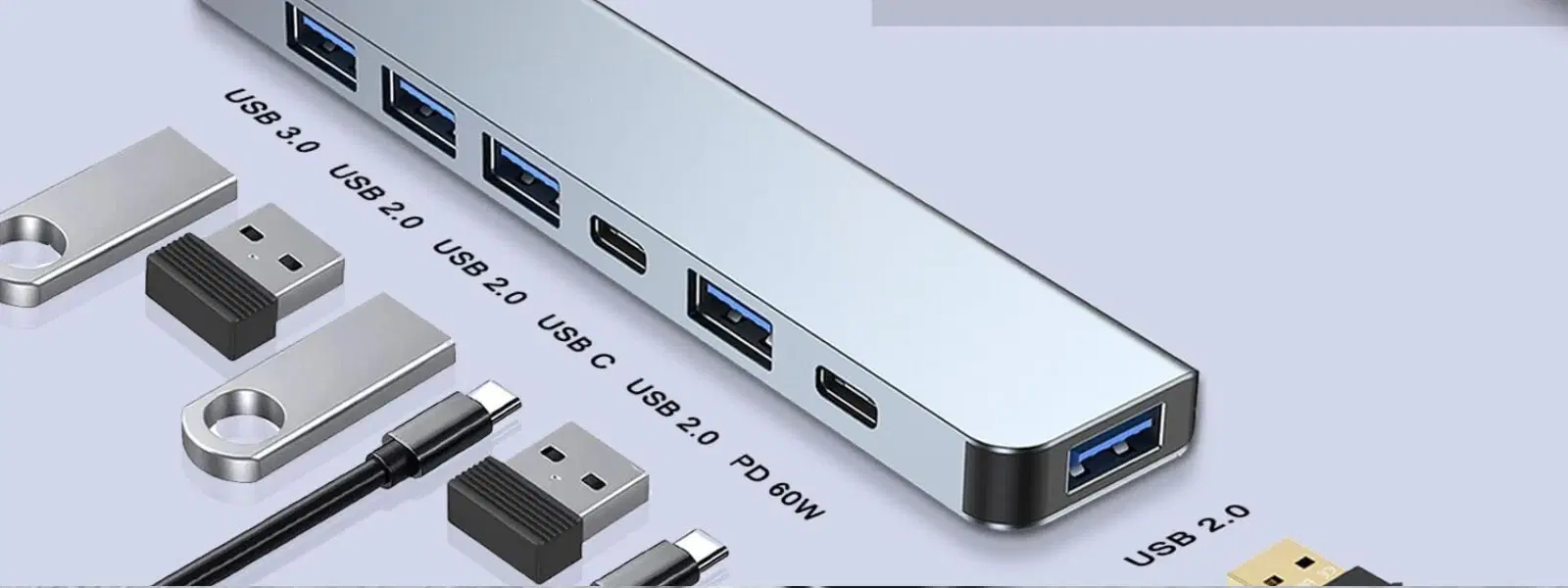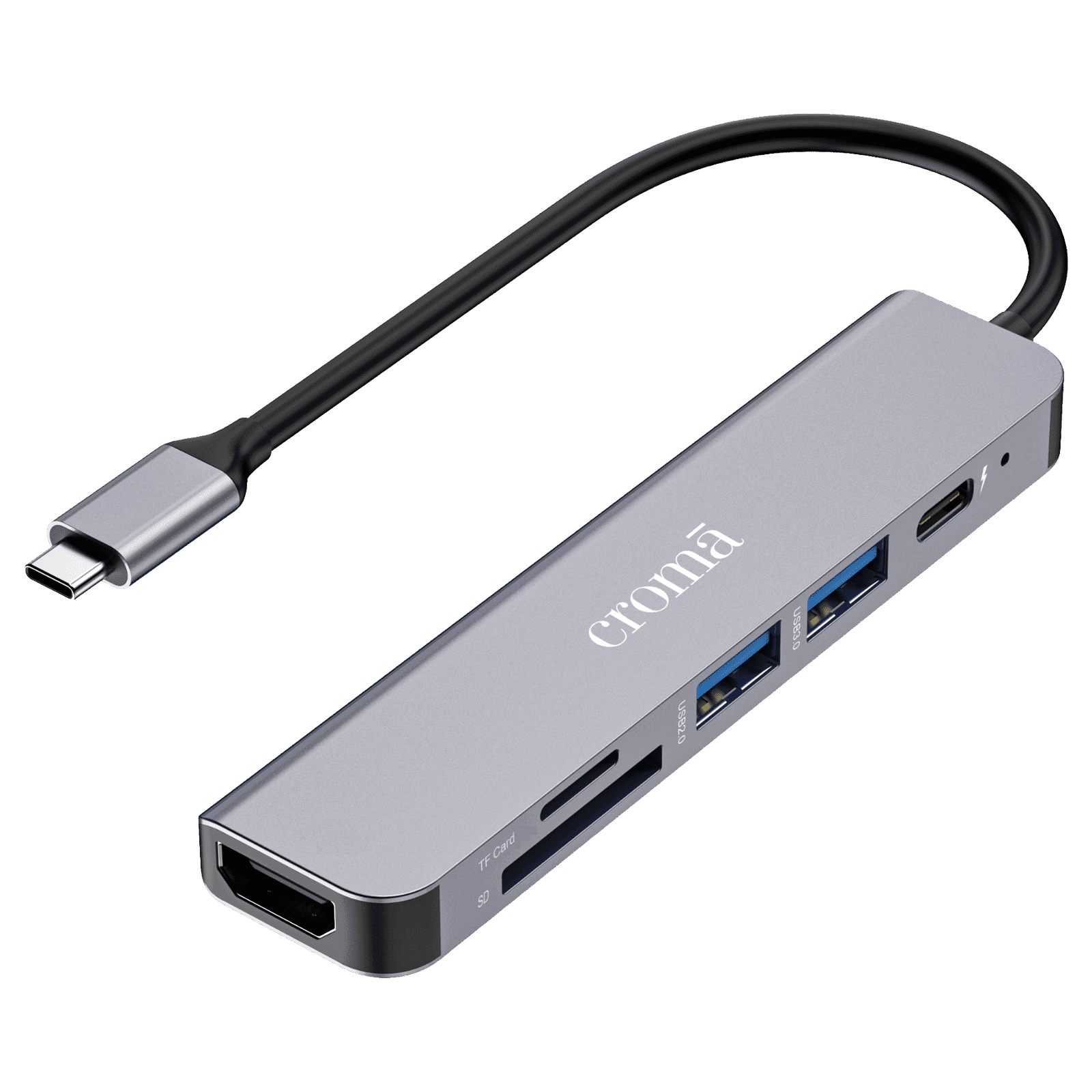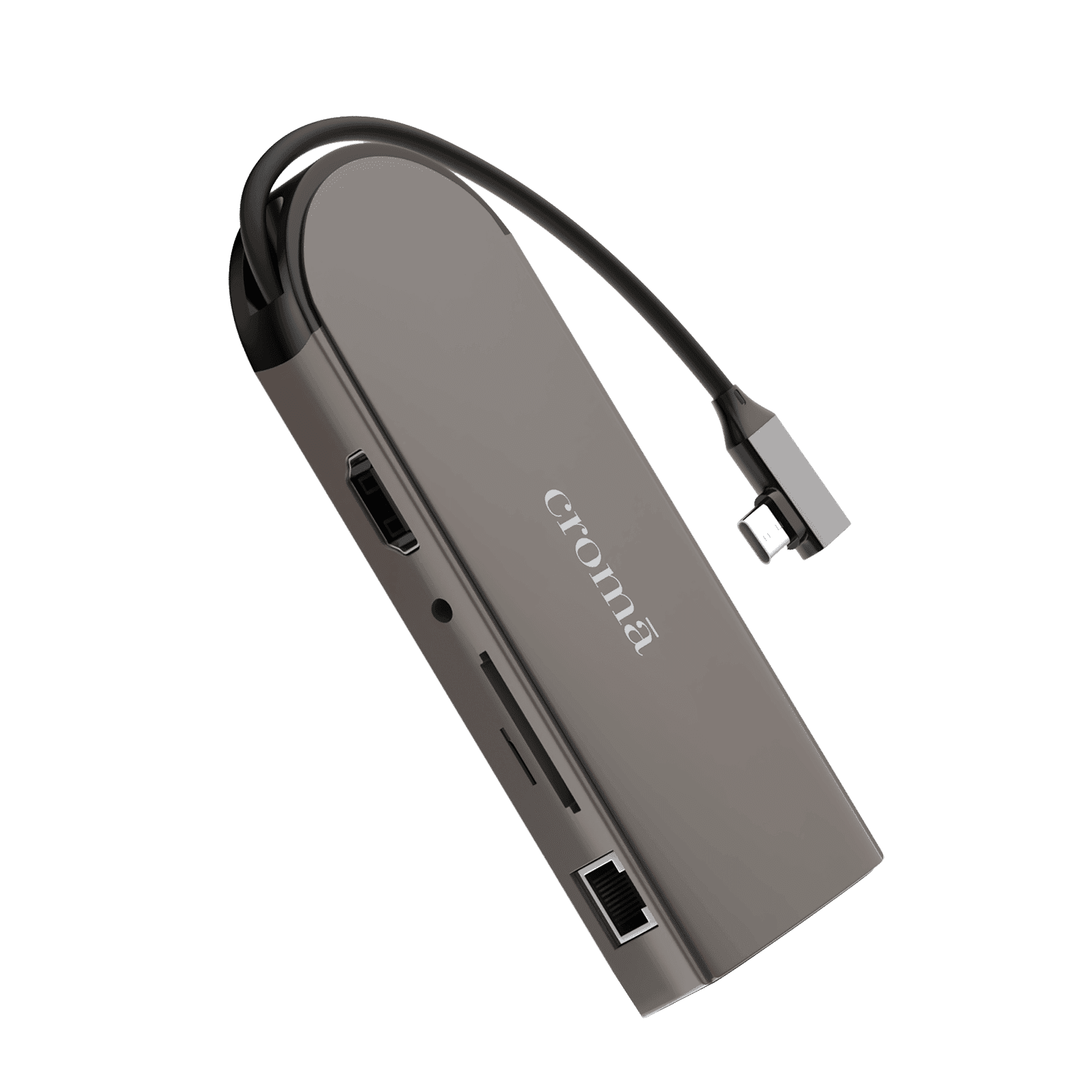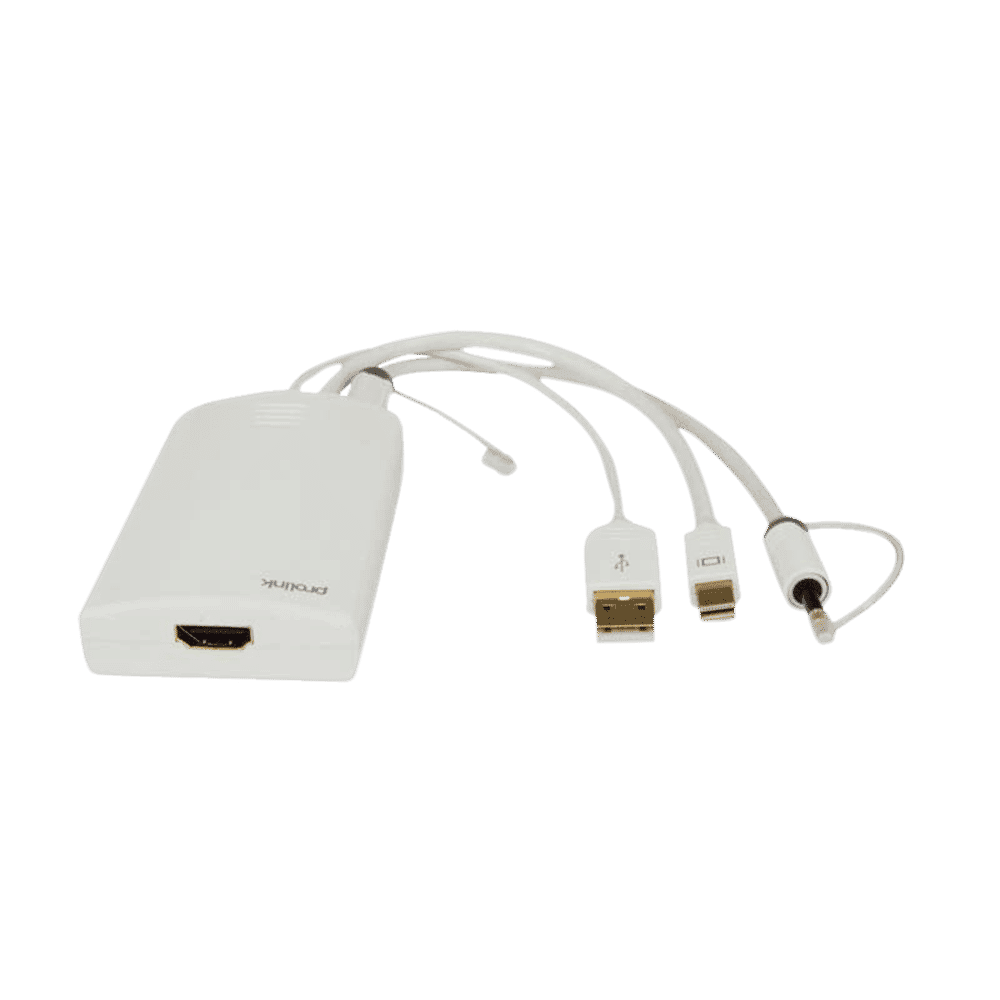
Consumer Electronics
•05 min read

Buy Croma 6-in-1 USB 3.0 Type C to HDMI, USB Type A 3.0, USB Type C, TF Card & SD Card Slot Multi Utility Hub (Supports Fast Charging, Grey) online at best prices from Croma. Check product details, reviews & more. Shop now!
In today's tech-driven world, connecting multiple devices can become a challenge. A USB hub helps expand the number of available ports, making it easier to connect keyboards, external drives, cameras, and much more. Whether you are a tech enthusiast looking to streamline your workstation, a student needing extra connectivity, or a home office professional juggling several gadgets, this guide will help you understand what a USB hub is and why it is essential.
A USB hub is an accessory that expands a single Universal Serial Bus (USB) port into several, allowing you to connect more than one device at a time. This simple device plays a crucial role in daily device management by enabling multiple peripheral connections through a single cable.
USB hubs distribute data and power from one main system to several connected devices. They function as a central connecting point, making it easier to plug in various gadgets without cluttering your workspace. The streamlined connectivity means that you can manage, charge, and transfer data between devices seamlessly.
When exploring your options, you may come across different types of USB hubs. Powered (active) hubs contain their own power source, making them ideal for high-power devices such as external hard drives. Unpowered (passive) hubs, on the other hand, draw power from the main computer and are best suited for low-power peripherals like keyboards and mice. Additionally, USB-C hubs and USB 3.0 hubs offer variations in speed and compatibility. Choosing between them largely depends on your specific use case and the devices you frequently connect.
Expert Tip: Did You Know? Powered USB hubs are ideal for high-power devices like external hard drives, while unpowered hubs are better suited for low-power peripherals such as keyboards and mice.
One of the first things to consider is how many ports you will require. For those with numerous devices, selecting a hub with an adequate number of ports prevents the hassle of constantly swapping devices. Familiarise yourself with port types such as USB 2.0, USB 3.0, and USB-C. Each type offers different speeds and compatibility, so choose what best matches your device’s requirements.
For users needing to charge multiple devices or support high-power accessories, power delivery becomes essential. Powered USB hubs come with an external adapter that ensures a steady supply of power. This is especially important in setups that include gadgets like smartphones, tablets, or external storage drives. Before making your purchase, check if your devices demand higher current, in which case a powered hub can provide a significant advantage.
Ensuring compatibility is pivotal for a seamless tech experience. A reliable USB hub should support the operating system of your computer, be it Windows, macOS, or Linux, and work well with various device types such as laptops, desktops, TVs, or gaming consoles. Confirm that the hub you choose aligns with your devices’ power and data transfer requirements.

Buy Croma 10-in-1 USB 3.0 Type C to USB 3.0 Type C, USB 3.0 Type A, SD Card Slot, TF Card Reader, RJ45, VGA Port, HDMI, 3.5mm Stereo Multi-Port Hub (High Speed Transfer Data, Silver) online at best prices from Croma. Check product details, reviews & more. Shop now!
Connecting a multitude of devices simultaneously is one of the strongest benefits of using a USB hub. You can easily manage tasks such as data transfers, charging, and peripheral connections without constantly plugging and unplugging cables. This ease-of-use is particularly valuable for busy professionals and students alike.
Integrating a USB hub into your setup can lead to significant productivity improvements. Whether you run a home office, manage a busy gaming setup, or use it in a professional workstation, having extra ports enables smooth workflow transitions and multitasking capabilities. It lets you focus more on your work rather than troubleshooting connectivity issues.
Modern USB hubs, especially USB-C variants, are designed with portability in mind. Their compact designs allow you to take them on the go, making them perfect for travel-friendly workstations. This convenience means you can maintain productivity, whether you’re working from home, travelling between offices, or studying in different locations.
While both USB hubs and docking stations expand device connectivity, they serve different purposes. A USB hub primarily increases the number of USB ports, whereas a docking station provides additional features such as video outputs, Ethernet ports, and other connectivity options. A docking station is more suited to comprehensive setups that need multiple forms of connectivity, while a USB hub caters to simpler, more portable solutions.
A USB hub is an ideal choice for those looking for a lightweight, budget-friendly solution that focuses on expanding USB port availability. They are well-suited for scenarios where simplicity, ease of use, and portability are paramount, such as completing a basic office setup or managing a few peripheral devices efficiently.
When evaluating performance, consider the port speed. USB 2.0, USB 3.0, and USB-C each offer different data transfer speeds. Make sure you opt for a hub that meets the performance needs of your devices. Additionally, examine the power delivery capabilities of the hub to ensure stable and sufficient power for your entire set of devices.
Double-check that the USB hub works with your current device ecosystem. This includes confirming support for your operating system, device types, and connectivity requirements. A hub that is compatible with your tech setup will help avoid potential connectivity issues in the future.

Buy ultraprolink USB 3.1 Type C to USB 3.1 Type C, USB 3.0 Type A, HDMI USB Hub (Bi-Directional Flow, White) online at best prices from Croma. Check product details, reviews & more. Shop now!
Look for models that offer durable materials and a compact design. A well-built USB hub should feel sturdy and be designed to minimise clutter. User-friendly layouts that allow for easy port access are essential. High-quality build not only increases durability but also enhances overall performance.
While exploring various models in the market, it is important to consider brands known for reliable and trustworthy products. A reputable brand ensures that your investment is protected and that you receive after-sales support if needed. Trusted platforms, such as Tata Neu, are dedicated to providing seamless shopping experiences accompanied by rewarding benefits like NeuCoins rewards which let you save as you purchase the latest tech offerings.
A USB dock typically provides additional features like video output and Ethernet connectivity, while a USB hub expands the number of USB ports available for devices.
Some hubs may experience reduced data transfer speeds when several devices are connected simultaneously, and unpowered hubs might struggle with high-power devices.
If your computer has a limited number of USB ports and you frequently connect multiple peripherals, a USB hub can be a practical and efficient solution.
Yes, you can connect a USB hub to a TV. It can be used to link external drives, keyboards, or streaming devices, provided your TV supports USB connectivity.
For laptops connected to high-power devices or if you need to charge multiple accessories at once, a powered USB hub is the recommended option.
The importance of choosing the right USB hub cannot be overstated. By evaluating key features such as port count, power delivery, and compatibility, you ensure that your hub will simplify your tech setup and boost productivity. Whether managing multiple devices at home or setting up a professional workstation, a carefully selected USB hub caters to your specific needs while providing reliable multi-device connectivity. Explore consumer electronics that embody trust, efficiency, and innovation.